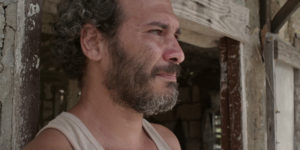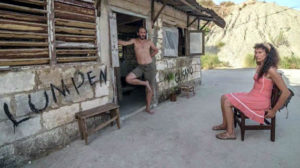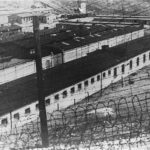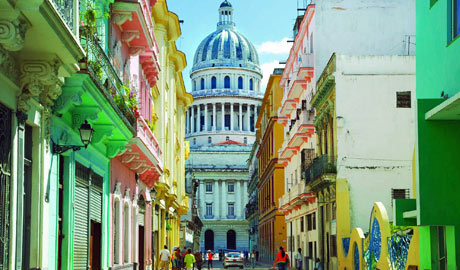HAVANA INTERNATIONAL FILM FESTIVAL CENSORED CUBAN MOVIE “SANTA and ANDRÉS”.VIDEO.
When confirmed me that the second feature film by Carlos Lechuga ‘Santa and Andrés’ would not be scheduled during the coming edition of the International Festival of the cinema of Havana, my first thought was not for the young director, but for Dolphin Prats.
Delfin Prats, that Cuban poet who was born in Holguin, in 1945. He studied philology and Russian languages in the former Soviet Union. For many years he was a translator of Russian. In 1968 his poetry collection ‘Silent language’ won the award David of the Union of writers and artists of Cuba (UNEAC). However, the work was censored and the book, turned into pulp. Prats returned to publish in Cuba in 1987 when he appeared to celebrate the rise of Icarus, which won the national Critics Award. His other poems are: the splendour and the chaos and waters.
SANTA AND ANDRES.
The life of the remarkable poet Holguin, winner of the David award served as inspiration for this film. That book, despite the award, never hit bookstores: it was considered that their texts were a decadent side of Cuban life from the moment, in particular nightlife of some young people in Havana, with some specimens saved by pure miracle, all editing became pulp.
Almost 50 years of those events, Santa and Andres proposes a kind of rehabilitation, full screen, who like Dolphin with silence and prison paid the price of what left them to express the talent.
https://youtu.be/lzCHv0h6apQ
In the film of lettuce a disgraced writer is guarded by a woman, who sits at the door of your House to control each of their acts. As in the famous story of Borges, who had a spy under Peronist rule to follow in his footsteps, Andrés and Santa will be also finding a way of dialogue, despite their very different criteria about what you live and how live you. Imagine that characters so different, so opposite, are a common space, appears to be the original sin of the film: something that also operated against Strawberry and Chocolate, retarding its presence on Cuban television screens for more than one decade.
The extreme view that operates even in the mentality of some officials and bureaucrats prefer to imagine that between the writer, artist and their vigilantes there cannot be any conversation: the mechanism of silence imposed on this irreverent is as effective as for which no word can help you explain the reason for his irreverence. That the writer of the film are, in addition, homosexual lay another stone against his name, in a country that has not even properly reorganized his memoirs about the repression of gays and lesbians, converted in political danger according to the image of the Cuban post1959, in which not only described them as sick or usual jokes of filling but also dropped them or silenced as political problems, leading to many fields of forced labour of the UMAP.
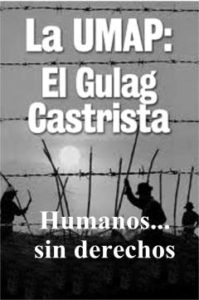
Today… all this happens in a very particular time of the year, which has not been particularly prodigal in good news, and can that anyone thinks that worry by the presence or not of a title on the undercard of an event, at the same time that happen other shudders, thing that should already be dead news.
But touches to them artists and intellectual, precisely, connect symbols, propose another reading of the history, understand it as a process where is crisscross words and gestures in another dimension. In an instant in that the notion of Cuba should start to rethink is, in which certain codes open others perspectives in what are and especially in what will be, in which the country will have that face is to questions delayed and older, the need of these spaces of visibility franca and confrontation solid is something essential.
The film of Carlos lettuce discusses that nation, recalls low what shuddering have been part of all this trajectory. But that discussion not will be complete until its plot and us themselves, and not only their characters and who decide if can see it or not, is look face to face.
By that I think in Dolphin, in his autobiography, in the of their contemporaries, and in us. Characters of a same film in which no face should be invisible.
Agencies / DDC/ Norge Espinosa, Habana / Excerpts/ Internet Photos / YouTube / Arnoldo Varona / TheCubanHistory.com
THE CUBANHISTORY, HOLLYWOOD.
FOLLOW US ON TWITTER AND FACEBOOK. THECUBANHISTORY.COM
CENSURA FESTIVAL INTERNACIONAL DE CINE DE LA HABANA EL FILM CUBANO “SANTA Y ANDRÉS”.
Cuando me confirmaron que el segundo largometraje de Carlos Lechuga ‘Santa y Andrés’ no estaría programado durante la venidera edición del Festival Internacional de Cine de La Habana, mi primer pensamiento no fue para ese joven director, sino para Delfín Prats.
Delfin Prats, ese poeta cubano que nació en Holguín, en 1945. Estudió Filología y Lenguas Rusas en la desaparecida Unión Soviética. Por muchos años fue traductor de ruso. En 1968 su poemario ‘Lenguaje de mudos’ ganó el premio David de la Unión de Escritores y Artistas de Cuba (UNEAC). Sin embargo, la obra fue censurada y el libro, convertido en pulpa. Prats volvió a publicar en Cuba en 1987 cuando apareció Para festejar el ascenso de Ícaro, que ganó el Premio Nacional de la Crítica. Otros poemarios suyos son: El esplendor y el caos y Aguas.
SANTA Y ANDRES.
La vida del notable poeta holguinero, ganador del Premio David sirvió de inspiración para este filme. Aquel libro, a pesar del galardón, nunca llegó a las librerías: se consideró que sus textos mostraban un costado decadente de la vida cubana del momento, en particular la vida nocturna de algunos jóvenes en La Habana, y salvo algunos ejemplares salvados por puro milagro, toda la edición se convirtió en pulpa.
A casi 50 años de aquellos acontecimientos, Santa y Andrés propone una suerte de rehabilitación, a toda pantalla, de quienes como Delfín pagaron con silencio y prisión el precio de lo que les dejó expresar el talento.
https://youtu.be/lzCHv0h6apQ
En el filme de Lechuga un escritor caído en desgracia es vigilado por una mujer, que se sienta ante la puerta de su casa para controlar cada uno de sus actos. Como en la célebre anécdota de Borges, quien tuvo un espía comandado por el gobierno peronista para seguir sus pasos, Andrés y Santa terminarán también hallando una manera de dialogar, a pesar de sus muy diversos criterios sobre lo que viven y cómo lo viven. Imaginar que personajes tan distintos, tan opuestos, hallen un espacio común, parece ser el pecado original de la película: algo que también operó contra Fresa y Chocolate, retardando su presencia en las pantallas de la televisión cubana por más de una década.
La visión extrema que opera aún en la mentalidad de algunos funcionarios y burócratas prefiere imaginar que entre el escritor, el artista y sus vigilantes no puede haber conversación alguna: que el mecanismo de silencio que se le impone a ese irreverente es tan eficaz como para que ninguna palabra pueda ayudarle a explicar el porqué de sus desacatos. Que el escritor del filme sea, además, homosexual pone otra piedra contra su nombre, en un país que aún no ha reorganizado debidamente sus memorias acerca de la represión contra gays y lesbianas, convertidos en peligro político según la imagen de la Cuba post1959, en la que no solo se les tildó de enfermos o habituales chistes de relleno sino que, además, se les redujo o acalló en tanto problema político, conduciendo a no pocos a los campos de trabajo forzado de las UMAP.

Hoy.. ocurre todo esto en un momento muy particular del año, que no ha sido particularmente pródigo en buenas noticias, y puede que alguien piense que preocuparse por la presencia o no de un título en la cartelera de un evento, a la par que suceden otros estremecimientos, es cosa que ya debiera ser noticia muerta.
Pero toca a los artistas e intelectuales, justamente, conectar símbolos, proponer otra lectura de la Historia, entenderla como un proceso donde se entrecruzan palabras y gestos en otra dimensión. En un instante en que la noción de Cuba debe empezar a replantearse, en el que determinados códigos abren otras perspectivas en lo que somos y sobre todo en lo que seremos, en el que el país tendrá que enfrentarse a preguntas impostergables y mayores, la necesidad de estos espacios de visibilidad franca y confrontación sólida es algo imprescindible.
El filme de Carlos Lechuga discute esa nación, recuerda bajo qué estremecimientos hemos sido parte de toda esta trayectoria. Pero esa discusión no estará completa hasta que su trama y nosotros mismos, y no solo sus personajes y quienes decidan si podemos verlo o no, se miren cara a cara.
Por eso pienso en Delfín, en su autobiografía, en la de sus contemporáneos, y en nosotros. Personajes de un mismo filme en el que ningún rostro debería quedar invisibilizado.
Agencies/DDC/ Norge Espinosa, La Habana/ Extractos/ Internet Photos/ YouTube/ Arnoldo Varona/ TheCubanHistory.com
THE CUBANHISTORY, HOLLYWOOD.



